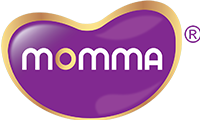I know a lot of mommies go through this. Your maternity is almost ending and you are debating whether or not you can continue breastfeeding. You are on the fence but leaning towards discontinuing to breastfeed your baby.
Hold on mommies, make sure you read this article for the good of both you and your babies.
On this edition on Lactation Counselor, we look closer on the negative side of formula-feeding your babies when they are younger than 6 months.
What is Formula-Feeding?
Formula-feeding is the inferior alternative to breast-feeding. Any sort of milk source other than the breasts is formula milk.
Drawbacks Formula-Feeding
No formula milk is as good as breast milk. It will not be able to supply everything your babies need.
- Breast milk creates a layer of protection in your babies’ digestive systems. Any fluid other than breast milk is ‘corrosive’ to this layer of protection and increases the risk of infections and allergic reactions.
- Increases the risk of obesity amongst infants as they mostly contain sugar. Compared to breast-fed babies, their bodies are firm, tougher and heavier despite appearing smaller and lighter.
- Formula feeding makes your babies full for a longer time as it takes longer to digest. So over time the babies will naturally prefer formula milk, reducing the instinctive crave for breast milk. This will directly affect the breast milk supply.
- Since the babies digestive systems is not ready yet, they will suffer from constipation or diarrhea. The enzymes responsible for digestion is not fully active.
We sincerely hope that upon sharing this knowledge, mommies out there will be inspired to feel determined and to persevere in their pursuit of breastfeeding their super babies exclusively in their 6 months and continuously to the age of 2.
Nothing else worth more than that for the babies and they deserve nothing less.




